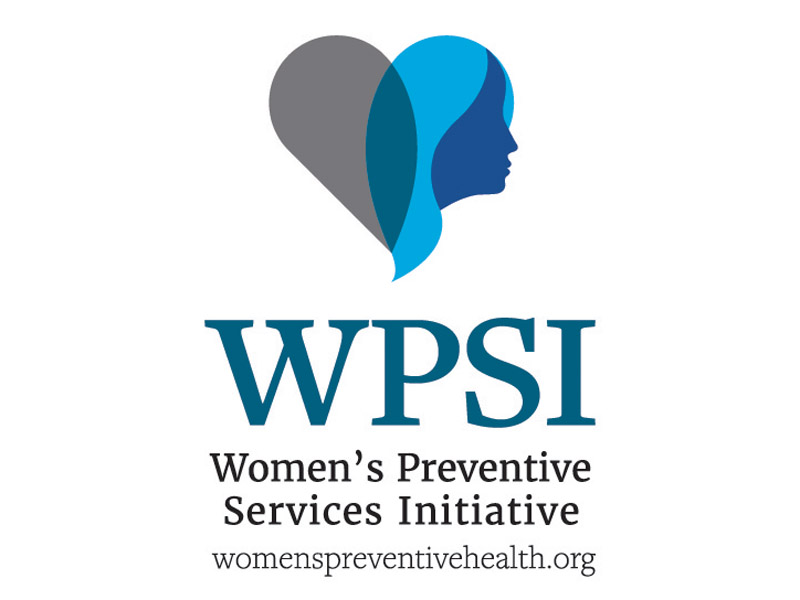Women’s Preventive Services Initiative
Updated Recommendations for Women Address Obesity, More
April 21, 2022, 8:45 a.m. News Staff — The Women’s Preventive Services Initiative, a longstanding partner of the Academy, has published a new preventive services recommendation on obesity prevention and updated five existing recommendations on other women’s health topics, bringing the total number of recommendations offered by WPSI to 13. Once the recommendations are adopted by the Health Resources and Services Administration, they will help women receive a comprehensive set of preventive health services without a co-payment, co-insurance or deductible.

“The new and updated recommendations provide family physicians with recommendations which are developed through a trustworthy process relying on available evidence and a multidisciplinary committee of national health organizations,” said Corey Lyon, D.O., an associate professor in the Department of Family Medicine at the University of Colorado School of Medicine, Denver, and associate program director at the University of Colorado Family Medicine Residency program.
“These recommendations can be used to support and ensure women have access and obtain the preventative health care to achieve the best health possible,” added Lyon, who also represents the Academy on the WPSI’s multidisciplinary steering committee that develops, reviews and implements the recommendations.
Recommendations in Review
The new recommendation, “Preventing Obesity in Midlife Women,” recommends counseling for women ages 40 to 60 years who have a BMI between 18.5 and 29.9 to maintain weight or limit weight gain to prevent obesity. Counseling may include individualized discussions on healthy eating and physical activity.
The recommendation also includes suggestions for future research, and calls for additional studies to measure the effectiveness of different approaches for delivering interventions to prevent obesity; to determine the effectiveness of interventions conducted in diverse patient populations to identify the benefits and harms of interventions in those populations; and to evaluate the effect of cultural components and psychiatric effects of weight stigma and body image.
Story Highlights
Meanwhile, five existing recommendations have undergone substantial revisions.
The breastfeeding services and supplies recommendation now lists consultation and education by clinicians and peer support services among the lactation support services that should be provided during the antenatal, perinatal and postpartum periods. A section on breastfeeding equipment has also been expanded to address breastfeeding difficulties and patients who need additional services.
The contraceptive care recommendation has been revised to recommend “that adolescent and adult women have access to the full range of contraceptives and contraceptive care to prevent unintended pregnancies and improve health outcomes.” The updated recommendation also clarifies that contraceptive care includes screening, education, counseling and provision of contraceptives, as well as follow-up care.
The implementation considerations section of the counseling for sexually transmitted infections recommendation has been expanded to recommend behavioral counseling “that includes, but is not limited to, counseling sessions with adequate contact time (effectiveness is greatest with high- contact interventions), and may include multiple counseling sessions, group sessions, in-person and tech-based encounters, and educational and behavioral change components using motivational interviewing techniques and goal setting.” The section also now says that counseling “may occur annually, or more frequently based on individual risk factors;” that the intensity of counseling “may be individualized based on risk factors;” that preventive counseling “may be considered in women without identified risk factors;” that clinicians “should consider the cultural and linguistic needs of individual patients and maintain their privacy and confidentiality” and that counseling “should be respectful, affirming and non-stigmatizing.”
The screening for HIV infection recommendation has been updated to include beginning ages for screening. The updated version now recommends that all adolescent and adult women age 15 years and older receive a screening test for HIV infection at least once during their lifetime, that earlier or additional screening should be based on risk, that rescreening annually or more often may be appropriate beginning at age 13 years for those at increased risk for HIV infection, and that risk assessment and prevention education for HIV infection begin at age 13 years and continue as determined by risk. The updated recommendation also states that clinicians should consider each patient’s cultural and linguistic needs, and that prevention education should be respectful, affirming and non-stigmatizing.
The well-woman preventive visits recommendation expands on the definition of well-woman visits, and includes new language on the provision of preventive services. The update states that recommended preventive services “may be completed at a single visit or as part of a series of visits that take place over time to obtain all necessary services depending on a woman’s age, health status, reproductive health needs, pregnancy status and risk factors,” and that well-women visits “also include prepregnancy, prenatal, postpartum and interpregnancy visits.”
“The goal of these recommendations is to help guide family physicians in providing the highest level of preventative women services, which are based on the highest degree of evidence available,” Lyon said. “Family physicians can be assured that by utilizing these recommendations, they will be providing robust comprehensive preventative health care for their patients.”
About WPSI
The American College of Obstetricians and Gynecologists launched WPSI in March 2016 through a cooperative agreement with HRSA. Since then, it has worked with several national professional organizations, consumer groups and patient advocates to develop, review and update recommendations relevant to women’s preventive health services.
In addition to preventive services recommendations, the WPSI has published several other resources, including a coding guide, a well-woman chart that outlines recommended preventive services, FAQs on telehealth services to assist clinicians during the COVID-19 pandemic, as well as new accounts on Twitter and LinkedIn.